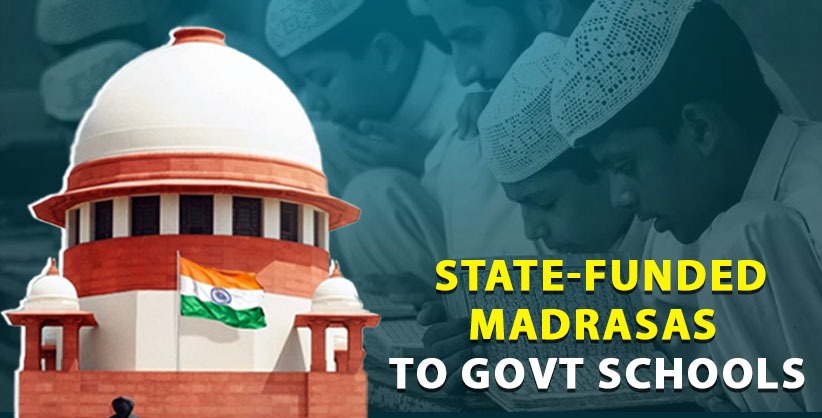NEW DELHI: The Supreme Court on Tuesday issued notice on an appeal challenging a judgement of Gauhati High Court that upheld the Assam government's decision to turn existing provincialised madrassas into regular government schools.
A bench of Justices Ajay Rastogi and C T Ravikumar sought a response from Assam government and others on the plea against the order.
The High Court had on February 4, 2022 confirmed the validity of Assam Madrassa Education (Provincialization) Act, 1995 (repealed by the Act of 2020) and all consequential government orders including the notification of February 12, 2021.
Petitioners Md Imad Uddin Barbhuiya and others through advocate Adeel Ahmed claimed that high court has erroneously concluded that the petitioners' madrassas being government schools, and wholly maintained by the state through provincialisation are hit by Article 28(1) of the Constitution and as such, cannot be permitted to impart religious instruction.
Arguing for the petitioners, senior Advocate Sanjay Hegde, said the high court had erroneously equated provincialisation with nationalisation.
The plea added that Assam Madrassa Education (Provincialization) Act, 1995 (repealed by the Act of 2020) is only limited to the state undertaking to pay the salaries and provide consequential benefits to the teaching and non-teaching staff employed in madrassas as also the administration, management and control of these madrassa.
Hedge said the properties of the madrassas were taken away after the decision.
The repealing Act of 2020 takes away property coupled with statutory recognition of Madrassa education and the impugned order dated 12.02.2021 issued by the Governor disbands the Assam State Madrasa Board created in 1954," the plea said.
The move amounts to an arbitrary exercise of both legislative and executive powers and a denial of the petitioners' ability to continue as madrassas providing religious instruction and education, it contended.
The plea submitted that such an encroachment into the rights of the petitioner madrassas without payment of adequate compensation is a direct infraction of Article 30 (1A) of the Constitution.
"The operation of the impugned judgement would result in the discontinuation of the petitioner madrassas as madrassas and would prevent them from admitting students for the old courses for this academic year. The Respondents by way of the Notification in question dated 12.02.2021 have abrogated the right of the petitioner madrassas under Article 30(1) to establish and administer educational institutions of their choice inclusive of the right to decide their own curriculum which may also be based on their perception of ways to preserve their religion or culture," the plea said.







